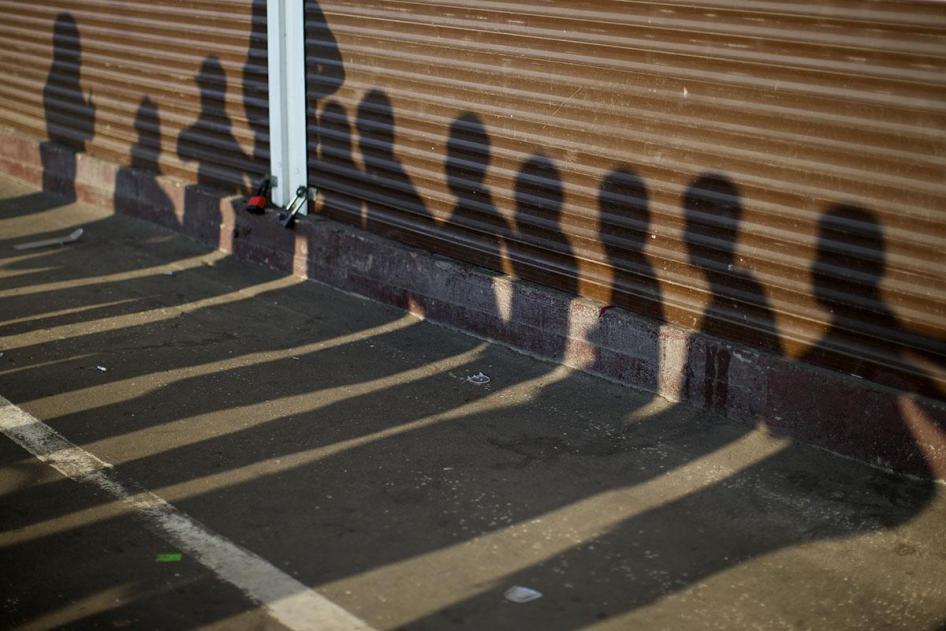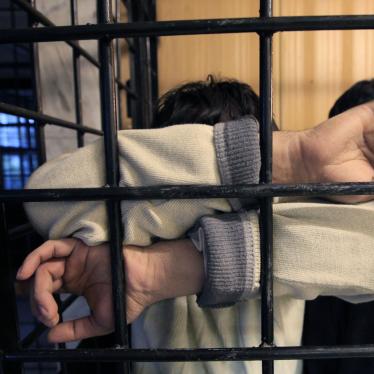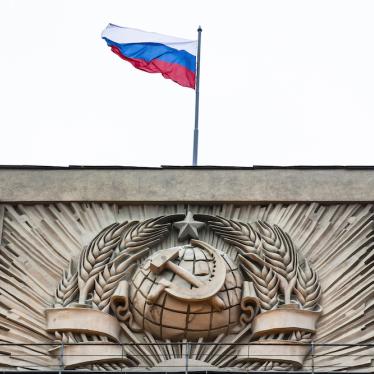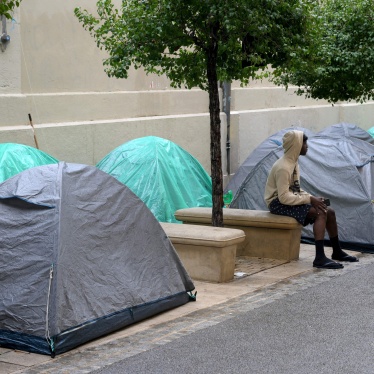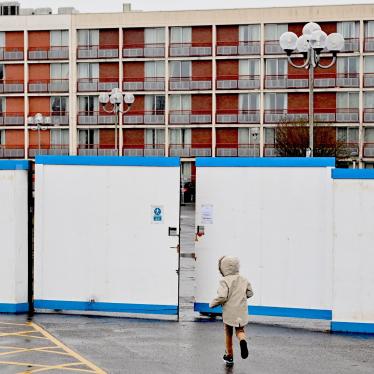On May 29, Russian state media reported that the authorities are considering introducing an app that migrant workers would have to download when they enter the country, once the borders re-open after the COVID-19 lockdown. Little is known about the proposal. But the few details that have been leaked to the media, coupled with Russia’s longstanding record of racial profiling, other racism against migrants, and recent developments in the “surveillance state” are grounds for serious alarm.
If this app does actually come into being, it could wreak serious harm.
The reports said the app would contain, among other things, a migrant worker’s detailed biometric data, “health status,” and information on their police record. It is not clear from reports what ‘health status’ would include, nor was it clear what biometric information would be used — though in Russia this information could refer to height, weight, hair color, fingerprints, DNA analysis, retina images, facial recognition (photos and videos), and voice samples. Furthermore, the app would apparently note the person’s “social trustworthiness” rating. What a “social trustworthiness” rating is, what indicators are used to assign it or what it might be used for can only be speculated about at present, but it was suggested that refusal to install the app would result in a lowered rating.
Preliminary media reports implied that the proposal sprang from the Ministry of Internal Affairs’ analysis of migration and "force majeure factors as a result of coronavirus pandemic." Otherwise, it’s not fully clear what rationale the authorities might present for introducing this app.
Whatever the rationale, it’s hard to imagine that the app would meet the standard needed to justify the blanket intrusion into privacy. In Russia, health and biometric data — very personal information — are protected by law, enshrined domestically in the constitution and privacy legislation. International human rights law also protects privacy. Restrictions on that right, and some others, can be justified if they are strictly necessary, proportionate to a legitimate goal, of limited duration and respectful of human dignity. At first blush, this app would fail every test.
It’s unclear whether the app would also access geolocation and other data on the user’s device. Still, it’s difficult not to be disturbed by potential similarities between the proposal and China’s various mass surveillance and behavioral engineering schemes, which may have served as inspiration. These include the “social credit system,” which assigns people’s level of “trustworthiness” and punishes a growing list of bad behaviour, such as jaywalking or eating on the metro, and then deprives offenders of access to desirable social goods, such as the right to live in an attractive city.
This wouldn’t be the first time Russia has introduced software to track, control and possibly penalise people. Rather, it’s part of a much larger trend in Russia of the authorities’ increased intrusion into people’s privacy through various surveillance technology.
In March, Russian officials announced that, as part of its crisis response to the COVID-19 pandemic, they are using Moscow city’s surveillance camera system to track those placed under a 14-day self-quarantine, which is required of those returning from abroad, as well as those who have had contact with individuals with COVID-19 or who show mild symptoms. The system is equipped with facial recognition technology and is supposed to be one of the largest of its kind in the world, rivalled only by China.
Activists had previously tried fighting its application in the context of peaceful assemblies as a violation of privacy. Then in April, the Moscow authorities introduced a “social monitoring” app to track people with symptoms of respiratory infections, including from COVID-19, to ensure their compliance with quarantine regulations. It not only violates users’ privacy rights, but it has proved to be deeply flawed, resulting in erroneous fines for hundreds, if not thousands, of people forced to use it.
There is no reason to expect anything different from this initiative.
While the app is still in the conception or planning phase, it is impossible to know the true scope of how intrusive it might be, or the myriad of negative repercussions for those trying to avoid it or deemed “not trustworthy.”
However, a member of the Committee for Defence and Security of the upper chamber of Russia’s parliament, Frantz Klintsevich, hinted at how the app might be used. He was quoted by media calling it “absolutely the right idea.” He asserted “it will solve all the issues with migrants in Russia. We should have done it long time ago, but because of political correctness and tolerance missed out on solutions to many problems.”
For years migrant workers in Russia, especially those from Tajikistan, Uzbekistan, and Kyrgyzstan, have faced xenophobia, racial profiling, and harassment and violence by police. For them, everyday racism is pervasive.
The COVID-19 pandemic seems only to have amplified xenophobia, with media coverage and social media posts fuelling public perception of migrants as a threat to public health. Portrayed as spreaders of the virus, many migrants do delivery or construction work and other jobs which have made them especially visible on the streets during the lockdown. Others remain at home, either working remotely or newly unemployed.
Migrants are also vilified as criminals, facing false allegations that many have turned to crime to survive. Unemployment has no doubt hit migrant workers very hard, leaving most extremely vulnerable without access to social welfare benefits, yet unable to return home because borders are closed. Yet official data from Russia's Ministry of Internal Affairs as of late April show, in contrary to the stereotypes, the rate of serious crimes committed by migrants has declined.
Those who, like Klintsevich, would welcome the app, should think twice. What is to stop authorities, after testing the app on labour migrants, then expanding it to all foreigners and, eventually, to Russian nationals?
The economic recession triggered by the COVID-19 pandemic is expected to hit the economies of countries sending migrant workers to Russia very hard. Many nationals from those countries will most likely have little choice than to head back to Russia, as their families depend heavily on remittances. If this app is introduced, they will be forcibly subjected to intrusive and humiliating tracking. When revising their migration policy, Russian authorities would do better to address racial profiling and everyday xenophobia, instead of pushing for more dangerous surveillance technology.

